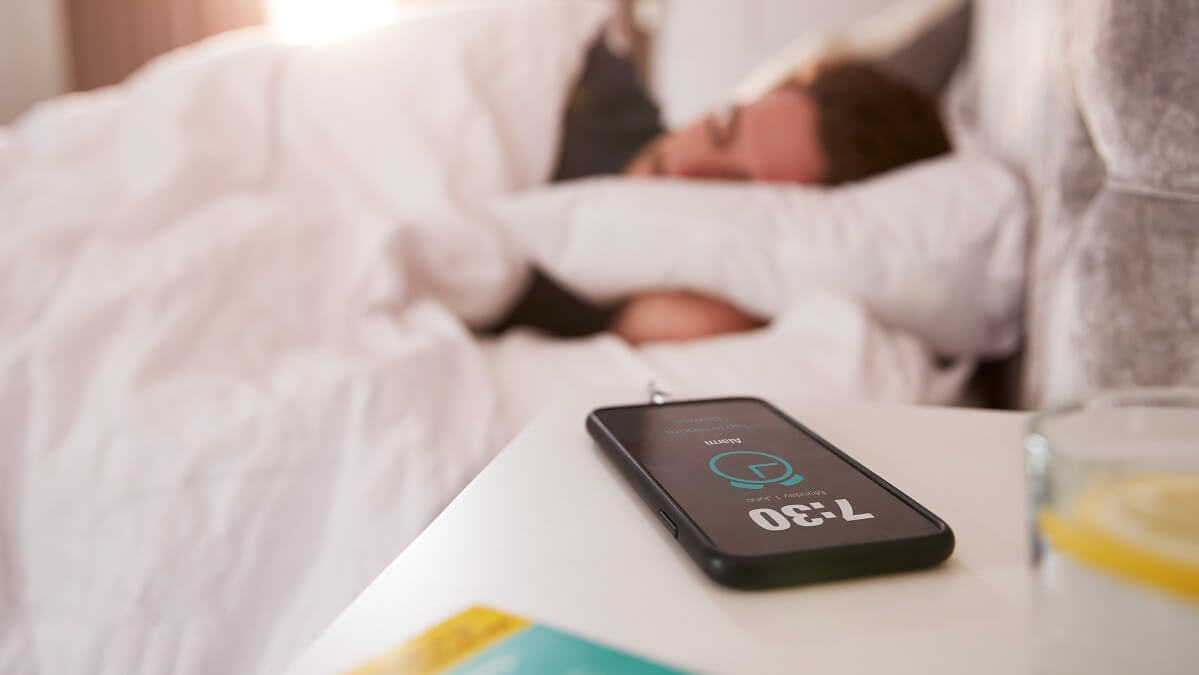Every year, as the clocks spring forward or fall back, your body adjusts to a seemingly small change – an hour of time. However, a change of season can leave you feeling off-kilter in all sorts of ways. Especially when it comes to your sleep.
We all have an internal biological clock known as the circadian rhythm, which regulates our sleep-wake cycle. When we lose an hour of sleep, our internal clock is temporarily out of sync with the external world. This misalignment can lead to difficulties falling asleep and waking up at the desired times.
Light, especially natural sunlight, plays a pivotal role in synchronising our circadian rhythms. When daylight is abundant, our bodies produce less melatonin, a hormone that promotes sleepiness. Conversely, as darkness falls, melatonin production increases, signalling it’s time to sleep.
The impact on your health
When daylight saving time begins, you lose an hour of sleep but gain an hour of evening light. The fact that darkness comes later means your body will start producing melatonin later, making it harder to go to sleep at your normal time.
Scientific research over the past decade has also shown the annual switch has a negative impact on our health.
An American study has analysed the impact of daylight saving on heart health. The study analysed a database from non-federal Michigan hospitals, looking at around 42,000 admissions from the beginning of daylight saving and the week prior, and compared them to the admissions in the week following the adjustment back to normal time.
The study found that on the Monday after losing an hour of sleep to daylight saving, the risk of having a heart attack increased by 24 per cent.
Study lead Dr Amneet Sandu, a cardiologist at the University of Colorado in Denver, noted that historically heart attacks are more likely to occur on a Monday morning. This may be because of changes in the sleep cycle, or from the stress of starting a new work week.
Dr Sandu presented his findings to the American College of Cardiology in Washington, stating, “With daylight saving time, all of this is compounded by one less hour of sleep.”
Interestingly, the study found that the overall number of heart attacks in the week after moving the clock forward didn’t change. While the rate of heart attacks spiked on the Monday, it then reduced for the rest of the week. This may be because factors trigger patients who were already at high risk to have a heart attack earlier in the week than they otherwise would.
How to minimise the impact of daylight saving on your sleep
- Gradual adjustment: start adjusting your sleep schedule a few days before the time change. Go to bed and wake up 15 minutes earlier (or later) each day until you’ve reached the desired schedule.
- Optimise your sleep environment: ensure your bedroom is conducive to sleep. Invest in blackout curtains to mitigate the effects of early morning sunlight.
- Limit exposure to artificial light: in the evenings, reduce exposure to screens and artificial lighting that can suppress melatonin production.
- Prioritise natural light: spend time outdoors during daylight hours, especially in the morning. Natural light exposure can help reset your circadian rhythm.
What is the purpose of Daylight Saving?
The start of daylight saving time can be traced back to Germany during World War I, when it was introduced as a measure to conserve fuel. During the same year, Tasmania became the first Australian state to set its clocks back. Queensland also implemented daylight saving in both World War I and II.
The idea was that, with more daylight at the back end of the day, people would use less electricity and get the most out of sunlight hours.
In 1971, NSW, Victoria, Queensland, South Australia and the ACT adopted daylight saving, while Western Australia and the Northern Territory opted out. Queensland then abandoned daylight saving in 1972.
Will the rest of Australia get rid of daylight saving time?
It’s a debate that’s had every year and it’s a hard one to solve. For those who work nine to five, the extra hour of daylight in summer is seen as a benefit. However, individuals working in sectors such as agriculture or those who begin their day before sunrise often find it counterproductive to work in the dark.
The further south from the equator you are, the bigger impact daylight saving can have on your daily life. For example, for those living in Tasmania, an extra hour of daylight in the evening can make a huge difference. However, in Far North Queensland or the Northern Territory, cooler evenings are important to make it through the summer.
In March this year, the United States Senate passed legislation to make daylight saving permanent. Known as the Sunshine Protection Act, it would end the twice-annual clock change permanently in the bid to give Americans more sunlight.
Do you live in a state that observes daylight saving time? What do you think of it? Let us know in the comments section below.
Also read: How to reset your sleep for spring
Disclaimer: This article contains general information about health issues and is not advice. For health advice, consult your medical practitioner.

